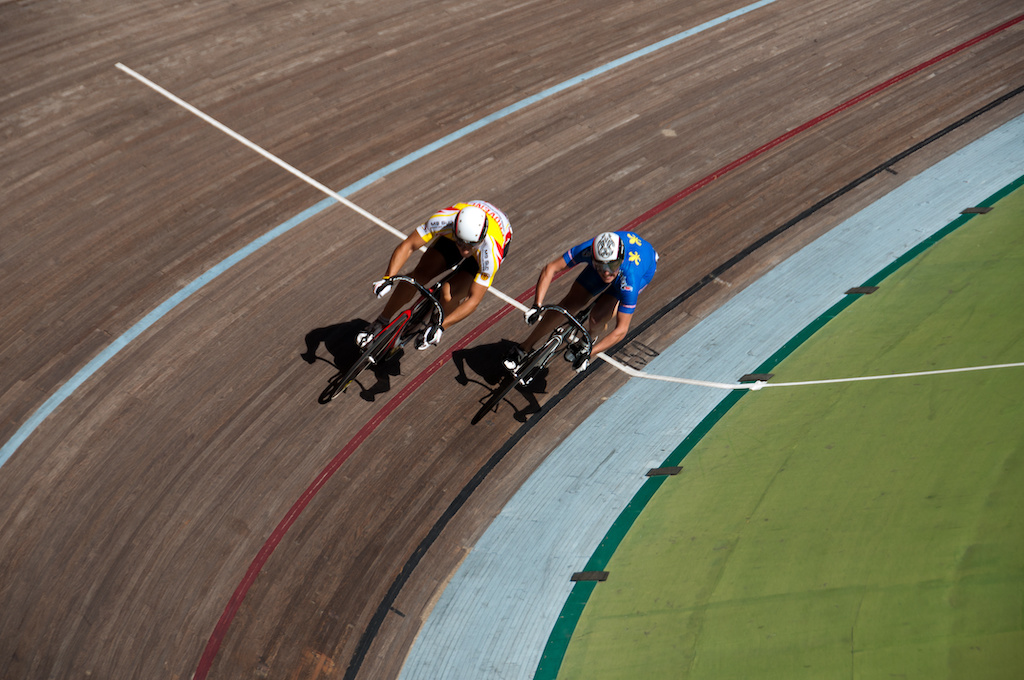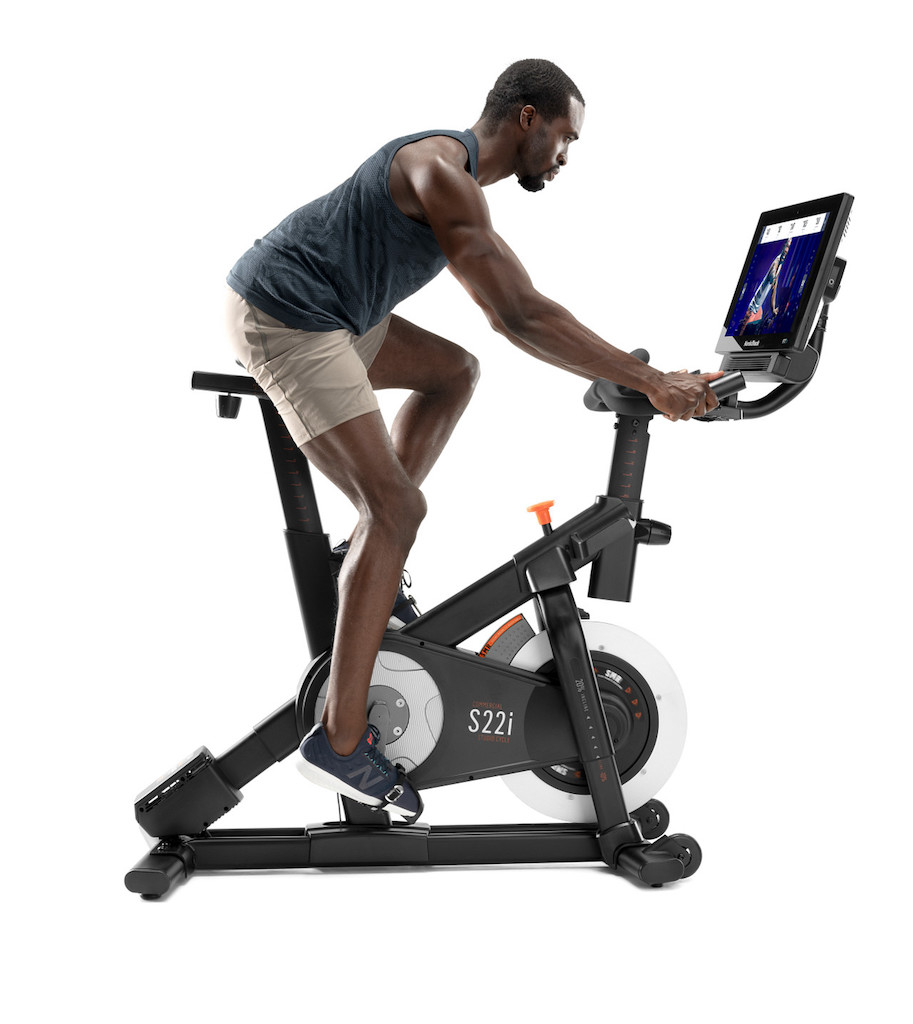Discover the track cycling programme of the 2021 Olympics and get to know the season’s must-see European and international cyclists on social networks. In the run-up to the Tokyo Olympic Games, challenge yourself with a 4-week customised biking challenge to try on your exercise bike.
Cycling at the Olympic Games

Track cycling is a long-standing discipline in the modern Olympic Games, held every time since 1896, with the exception of the Stockholm Games in 1912. This version of indoor cycling takes place in a velodrome, on a 250-metre circuit with 2 elevated bends with a 40° slope. The discipline is practised on fixed-wheel bicycles without brakes or gears.
During the 2021 Olympic Games, the track cycling events will be held in the Izu velodrome, 120 km from Tokyo, between August 3rd and 9th. Several types of competitions are on the programme, with always one men’s and one women’s event:
- Team Sprint: 2 teams of 3 riders challenge each other over several laps.
- Individual Sprint: this duel between two athletes requires great tactical sense.
- Keirin: this 2,000-metre race was invented in Japan. A bunch of several riders, limited in speed over 1,400 metres, is then released for an often spectacular final sprint.
- Team Pursuit: this endurance race sees 2 riders competing against each other over 4,000 meters for men and 3,000 meters for women. Starting each one in the middle of an opposite straight line of the track, the competitors have to catch up with each other or, failing that, finish the planned distance first.
- Omnium: this format consists of several individual events, with points awarded for each round.
- Madison: Withdrawn from the 2008 calendar because no women’s event existed, this discipline is back in full force in 2021, this time with a women’s event. The Madison is done in teams of 2 riders, one active, the other in reserve, who can hand over the relay at any time.
Track Cycling: European Athletes to Follow On Social Media

Some of the European and international track cyclists to watch during the 2021 Olympic Games have Instagram accounts:
- Kevin Sireau (@kevin_sireau) for France, triple world champion in team sprinting
- Mathilde Gros (@gros_mathilde), a French hopeful for the 2021 Olympics, she is specialised in sprinting and is also aiming for a medal in the Keirin, a discipline in which she was European champion in 2018 and 2019.
- Filippo Ganna (@gannafilippo) for Italy, four-time world pursuit champion
- Emma Hinze (@emma_hinzee) for Germany, crowned world speed champion in 2020
- Charlie Tanfield (@charlie_tanfield) for the UK, 2018 World Team Pursuit Champion
- Laura Rebecca Kenny (@LauraKenny31), a British cyclist who’s 7 times world champion and 4 times Olympic medalist in endurance events
Internationally, Nicholas Paul, from Trinidad and Tobago, and Kelsey Mitchell, Canadian, are also to be followed, having both broken a world record in the 200-metre sprint in 2019.
4 Week Olympic Biking Challenge

While waiting for the Tokyo Olympics, why not challenge yourself with a 4-week exercise bike cycling challenge? Test your limits by taking inspiration from the track cycling events planned for the Olympic Games. Your challenge? To surpass yourself in endurance and speed, thanks to a training worthy of a great athlete:
- Week 1: getting back in shape, then preparing a 200-meter sprint with split work. Record your performances carefully during your sprint event on the last day of the week.
- Week 2: focus on endurance! Run 1,000 metres, then increase the distance by 500 metres per day to reach 4,000 metres for the last day’s event.
- Week 3: at each session, start with endurance work (60 to 75% of your maximum heart rate) and finish with short speed sessions (7 seconds) interspersed with recovery periods to increase your explosiveness.
- Week 4: analyse your runs on the endurance and sprint events carried out at the start of the challenge. Highlight your strengths and the points to be improved, then set up a strategy: split, sprint, work on breath, speed, effort management… At the end of the week, after a rest day, organise “your Olympics” with an endurance event, then a sprint (after having recovered fully) in the same conditions as your tests at the start of the challenge. With all the progress made, you’ll certainly deserve a medal!
Check out our Fitness & Training page for more advice.
